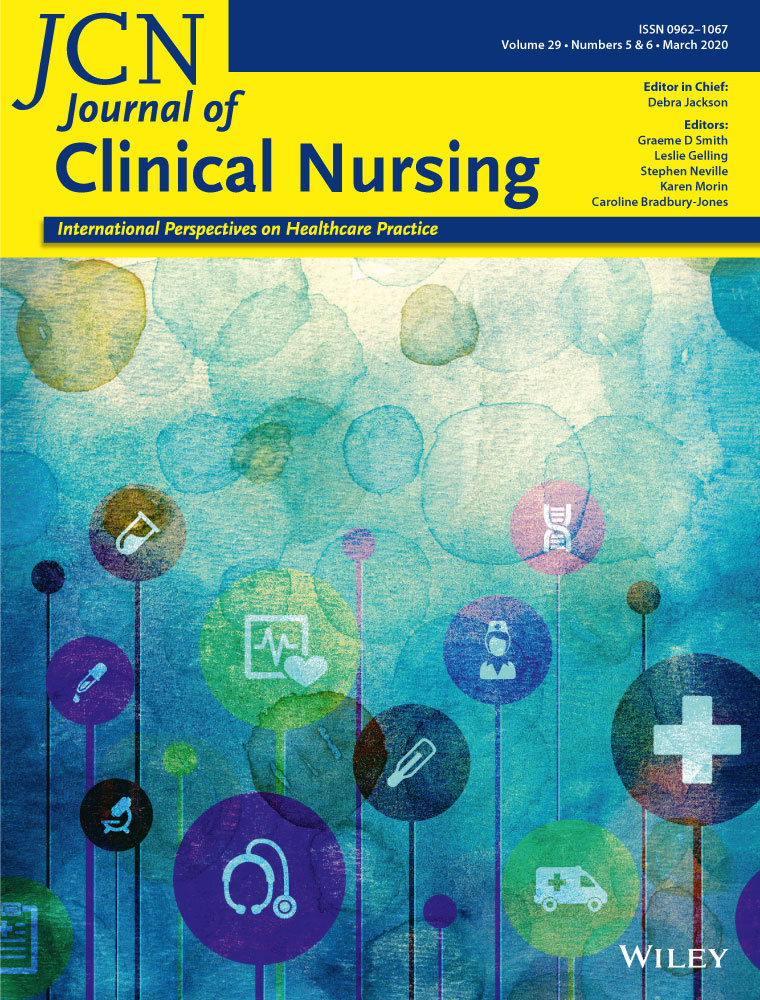The use of mentholated popsicle to reduce thirst during preoperative fasting: A randomised controlled trial
Abstract
Aims and objectives
To compare mentholated popsicle with usual care (absolute fasting) in the change of thirst intensity and discomfort of patients in the preoperative fasting.
Background
Thirst is defined as the desire to drink water, and it is considered to be a multifactorial symptom. In the preoperative fasting, the patient may experience intense thirst, often for a long time, that can lead to feelings of suffocation, desperation, fear and anxiety.
Design
A randomised controlled trial.
Methods
Forty patients, aged between 18–60 years, were randomised to mentholated popsicle group or absolute fasting group (twenty in each). The primary outcomes were thirst intensity, evaluated by a numeric scale ranging from 0 (no thirst)–10 (the worst possible thirst), and discomfort from thirst (evaluated by the Perioperative Thirst Discomfort Scale), both measured twice (baseline and after 20 min of intervention). The CONSORT checklist was used to report this study.
Results
Mean age was similar in both groups (38 years in the mentholated popsicle group and 39 in the absolute fasting group). At baseline, the mentholated popsicle group had higher median for the scales of intensity (6.5) and discomfort (7.5) from thirst than the absolute fasting group (5.0 and 5.0, respectively). At the end of 20 min, the popsicle group had a statistically significant decrease in intensity and discomfort from thirst (median decreases of 5.0 and 7.0 points, respectively) when compared to the absolute fasting group (median increases of 0.5 and 1.0 points, respectively).
Conclusions
The use of mentholated popsicle decreased the intensity and discomfort from thirst, and it is a viable strategy for the management of thirst in the preoperative fasting.
Relevance to clinical practice
In the preoperative fasting, making mentholated popsicles available to patients is an easy strategy to manage thirst, which might lead to better care.
CONFLICT OF INTEREST
The authors have no conflict of interest to disclose.




